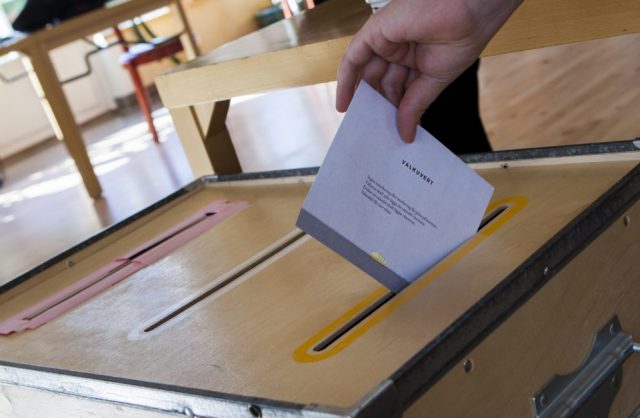
It is difficult for the liberal party in Sweden to keep a straight line when they have now started the election campaign ahead of the European Parliament elections in June. They are for cooperation with nationalists at home but against cooperation at the European level.
The election campaign in the spring ahead of the European elections will be a test of how different parties relate to each other in Sweden. The political power game has changed significantly during several parliamentary elections, as a new party quickly grew strong and in the last election in 2022 became the country’s second largest – the Sweden Democrats (ECR).
It has been a painful process for the old parties to accept that the Swedish people want to stop the large immigration that has taken place over several decades. This opposition was long seen as “xenophobia” and “racism”. But the parties that used these derogatory expletives have had to think again.
In step with increased crime and Swedish society’s inability to integrate migrants from the Middle East and Africa, popular dissatisfaction has grown. Although it is well known that Sweden has a large welfare state and the politicians have invested an increasing proportion of tax revenue on the migrants – through language training, labor market interventions and three times as many resources per school pupil in migrant-dense residential areas – the development has only gotten worse.
What was considered indecent racism a few years ago when the Sweden Democrats proposed measures, are proposals that most established parties themselves now advocate.
Liberals kick off the European election campaign
It is therefore interesting to hear how the parties express themselves before the elections to the European Parliament. First up to be interviewed on Sveriges Radio (the equivalent of BBC Radio) was the Liberal Party’s top name, Karin Karlsbro. She is unknown to the general public, also in Sweden.
The Liberals (RE) have had the hardest time accepting cooperation with the Sweden Democrats. But the party decided before the national parliamentary election in 2022 that it could be part of a non-socialist government that had the support of the Sweden Democrats. Thanks to the continued success of the Sweden Democrats, three Centre-right parties were able to form a government with active support and cooperation with the Sweden Democrats.
But in this interview Karin Karlsbro categorically reject all cooperation with the Sweden Democrats and the EU-parliamentarian group ECR.
The liberals want strong European cooperation, she said, while the Sweden Democrats want weak European cooperation, and they also talk about Sweden leaving the EU (“Swexit”). A weaker Europe would make it harder to stop Putin, she claimed.
Federalist elite versus national democracy
For conservatives, this way of reasoning is almost childishly superficial. First, the EU and Europe are not the same thing. The party leader for the Sweden Democrats, Jimmie Åkesson, opened his press conference when he presented the party’s candidates by saying that his party is the most pro-European but the most EU-critical party.
It is the diversity of cultural traditions that makes Europe strong, not a centralized union that tries to marginalize the democracy of the member states, where politicians and voters are closer to each other.
It is strange that liberals believe that decisions are better the more centralized and top-down they are made. It sounds more like socialism than thoughts associated with market economics.
It is a paradoxical phenomenon that all center-right parties in Sweden with ideological conviction and commitment defend market economy and freedom of choice in the national political context, but swallow all proposals for centrally controlled economic thinking when it is put forward by the EU institutions.
Hope rests with other parties
The hopes on the part of the Sweden Democrats are that the parties that are part of the EPP (that is, the Moderates and the Christian Democrats) will start to rethink and understand that it is also important to defend pluralism at the EU level and that differences are signs of vitality, while conformism and casting everyone in the same mold is to strangle society and human creativity.
About the Swedish liberals (in the RE), the first hearing in the major media before the EU elections does not indicate any hope for an awakening.



 Subscribe
Subscribe